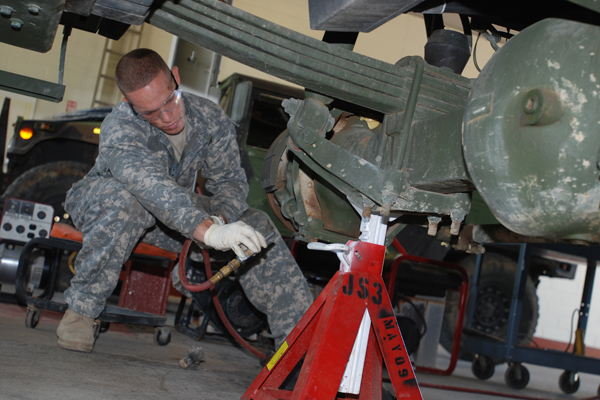Table of Content
You need to listen and intuit at times, while respecting their wishes and preferences. Some clients will require careful communication, such as patients with dementia. There are plenty of resources online that talk you through how to communicate with someone with dementia. Bear in mind that you will need the ability to alter the way you talk depending on the particular needs of the client. Big data is transforming the health care industry relative to improving quality of care and reducing costs--key objectives for most organizations.
Executed daily operations of meal preparation, house cleaning and medication reminders. Provided housekeeping, meal preparation, medication reminder and laundry services. Provide skilled patient care to one male client who is quadriplegic within his home.
The Competency and Performance Management Solution for Healthcare Organizations
Turnover rates for the profession are high at 27%, which is nearly twice the average for other professions. 58% of home care staff leave their jobs in less than a year, while a remarkable — and shocking — 73.5% leave within two years. Assisted with the development of an occupational therapy program for a psychiatric unit. Assist setting up physical and occupational therapy; according to physicians' orders.

Knowing you have first-aid training will also give your client peace of mind that they will be well-looked-after. If you are going to be taking care of someone else’s needs, sometimes around the clock, you will need to able to engage with your client and respond to what they want. Essential skills to manage intense emotions and develop a self-care practice to promote mental health...
Home Health Care Related Careers
This helps you get past resume screeners that scan your resume for specific keywords. This template is clean, readable by resume screeners, and is effective at calling out key accomplishments and projects from specific work experiences. This would be useful if you have been at a company for a while, or been in a consulting-type of role, and want to point hiring managers to your most impressive accomplishments. Here are examples of proven resumes in related jobs and industries, approved by experienced hiring managers. You can even download and edit the resume template in Google Docs.

In juggling many different tasks each day, you’ll need strong organisation skills to keep track of everything. Care homes can be extremely busy places to work, some with hundreds of residents who all need care, support, medication and companionship. To highlight your skills as a home care provider, you should start by creating a list of your key skills and experience.
Vital Signs
I understand that consent is not required to purchase any goods or services from this school and that my consent can be revoked at any time. You don’t know everything, no matter how excellent your training was. A receptive attitude means you can handle criticism and enact change when needed. Even employees at the top of their game will ultimately have gaps in their knowledge due to advances in medicine, technology, and procedures.

Although sometimes the job can be tough, a friendly and positive attitude will go a long way to helping you in your care home career. Not only will this make residents and their families feel better, but your fellow care workers will appreciate your positivity too. Reliability is one of the most important skills for a home care provider.
For example, 32.7% of home health care resumes contained home health as a skill. Let's find out what skills a home health care actually needs in order to be successful in the workplace. The most common hard skill for a home health care is home health. Good customer service in the medical field permeates all levels of employees.

It is an important skill for home care providers because it allows them to connect with their clients on a deeper level and provide them with the emotional support they need. Time management is vital in any career but in health care where lives are literally on the line, it’s even more important. You’ll often be pulled in multiple directions at work so it’s important you know how to prioritize and triage pressing matters. Learn about the many soft skills you should acquire to work as a medical assistant, respiratory therapist, pharmacy technician or other healthcare profession. With these skills and the required education, landing a job as a home health aide can be an easy venture that leads to a really enjoyable career. Home health aides sometimes live with their patients; so keeping yourself and your surroundings clean is not only polite, it’s imperative to keeping your patient healthy.
These moods might cause your client to become uncooperative when it comes to eating, drinking or even bathing. If you are a bright, positive person, you are more likely to soothe your client and elicit cooperation. It’s also been proven that positivity creates a domino effect, improving people’s mental and physical wellbeing. As a carer, you need to have empathy and put yourself in your clients’ shoes, but at times, this can take a serious emotional toll. Carers can end up taking their work home with them, and finding a delicate balance to maintain mental wellness may be difficult, taking even years to master.
Being patient with your client will help you stay calm and cool, even if you’re starting to feel the pressure of constantly being around another person. Sometimes your patient will require lifting, or you’ll have to move furniture or other heavy objects. Having a bit of physical strength never hurts, but stamina is also an important skill you should have as you’re constantly on the move. Visiting the gym on weekends or even taking jogs in the mornings can help you build strength and stamina. Obviously, since you’re working with another human being on a daily basis, often for hours, you need to be able to empathize and interact with them in a way that’s both healthy and respectfully. Home health aides often help patients who can no longer take care of themselves, so offering them some dignity in your work is important.
Organized clients' daily schedule provided transportation and maintained the cleanliness and orderliness of the clients' home. Maintained records of patient care, condition, progress or problems; reported and discussed observations with Supervisor or case Manager. Assisted with meal preparation, obtaining medications, essential transportation. It is essential because it will save on time in cases of emergencies.











